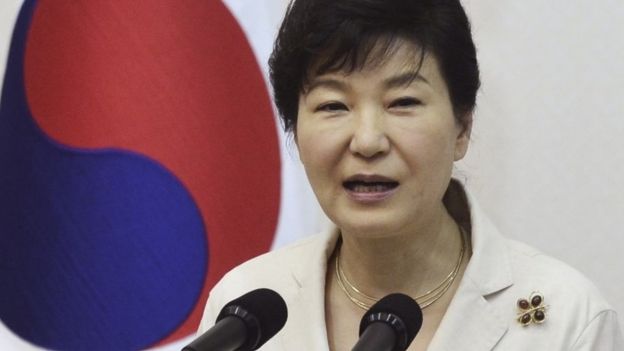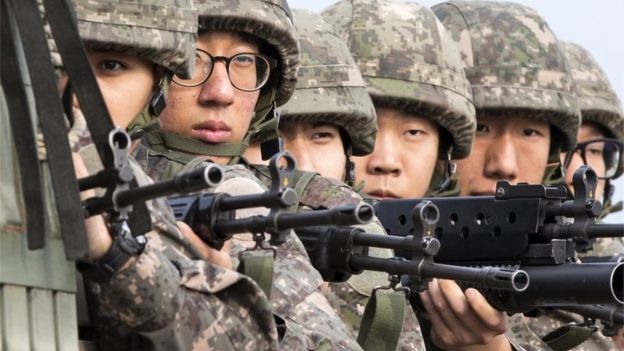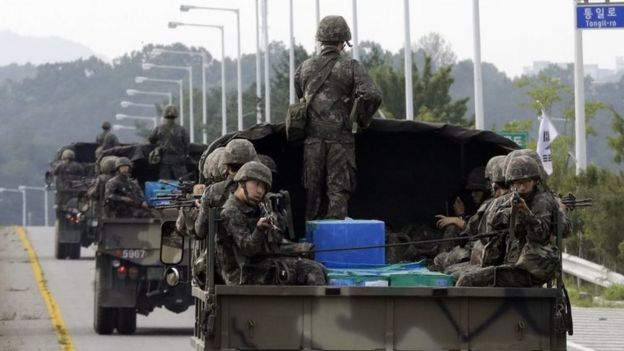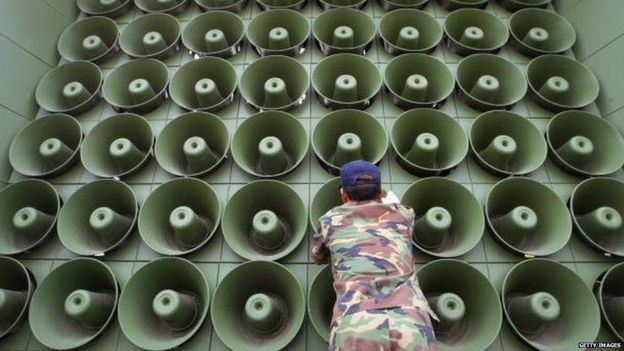South Korean President Park Geun-hye
has said its cross-border propaganda broadcasts will continue until
Pyongyang apologises for landmines that injured two South Korean
soldiers.
North Korea has threatened to use force to stop the broadcasts, ratcheting up tensions on the Korean Peninsula.High-level talks to resolve the issue went through a second night on Sunday.
Both country's militaries are on alert after a brief exchange of fire at the border on Thursday.
'Appropriate steps'
North Korea denies laying the landmines which maimed the soldiers earlier this month as they were patrolling the Demilitarized Zone (DMZ), the heavily fortified border.It also denies shelling the South on Thursday, an incident which prompted return artillery fire from the South.

"Otherwise, this government will take appropriate steps and continue loudspeaker broadcasts."
South Korea resumed the propaganda broadcasts along the DMZ earlier this month, after an 11-year hiatus, in apparent retaliation for the landmine attack.
'On a war footing'
The talks that began on Saturday in the abandoned "truce village" of Panmunjom inside the DMZ have, for the time being, subdued heated rhetoric of imminent war.South Korea is represented by national security adviser Kim Kwan-jin and Unification Minister Hong Yong-pyo, while the North has sent senior officials Kim Yong-gon and Hwang Pyong-so, who is seen by many analysts as North Korean leader Kim Jong-un's second-in-command.


On Friday, North Korea ordered its troops to be "on a war footing".
South Korea has evacuated almost 4,000 residents from border areas and warned that it would "retaliate harshly" to any acts of aggression.
The two Koreas remain technically at war, because the 1950-1953 conflict ended in an armistice, not a peace treaty.
Loudspeakers and psychological warfare
The broadcasts were part of a programme of psychological warfare, according to South Korean newspaper Korea Times, to deliver outside news so that North Korean soldiers and border-area residents could hear it.
BBC NEWS


No comments:
Post a Comment